- Government of Montenegro
Ministry of Education, Science and Innovation Challenges in establishing the first Science and T...
Please note: The page below represents the archived content relating to the previous Government of Montenegro. Some of the information might be inaccurate or outdated.
Archive
Challenges in establishing the first Science and Technology Park in Montenegro: an opportunity to connect science and business

Published on: May 14, 2018 • 8:30 PM Author: Ministry of Science
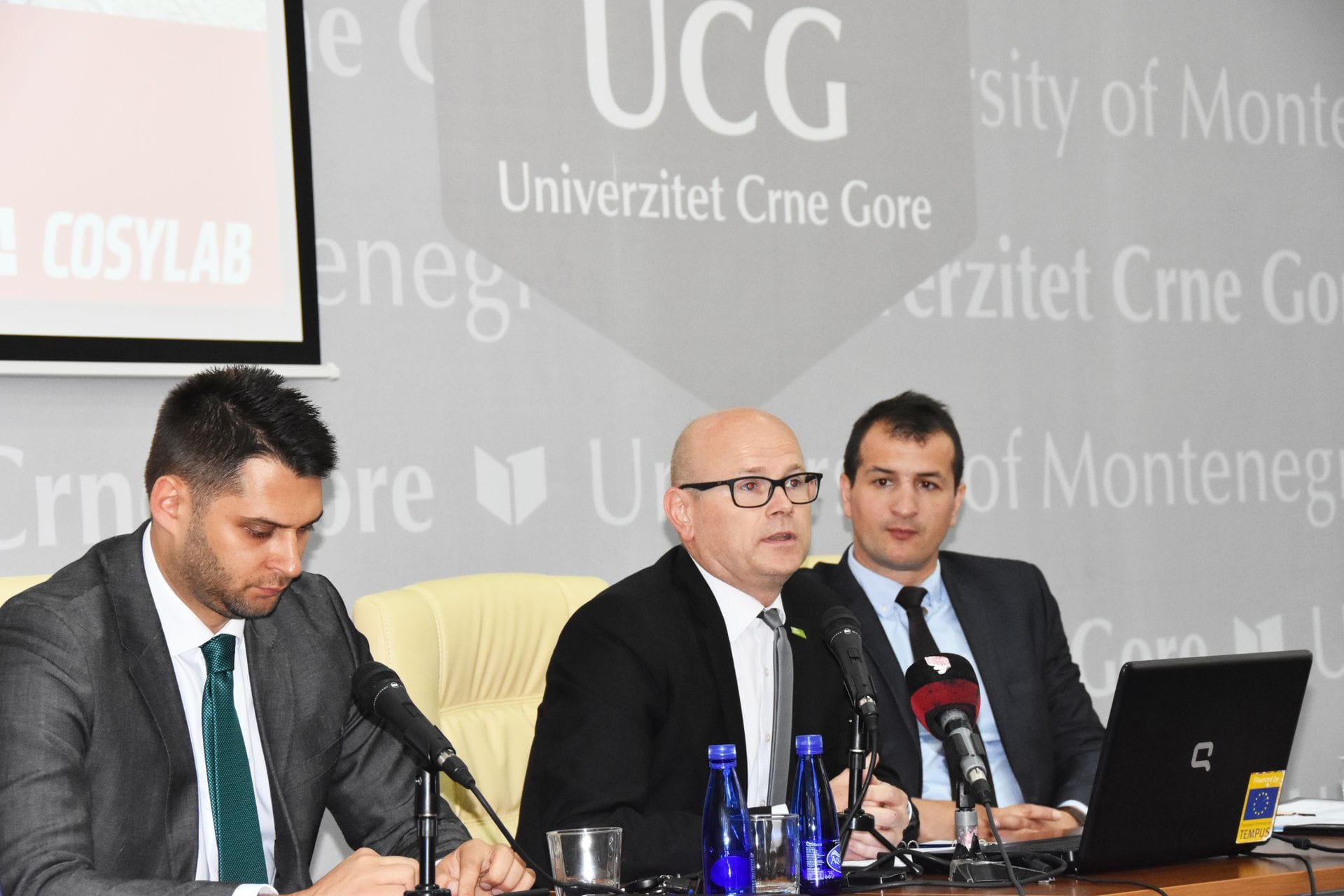
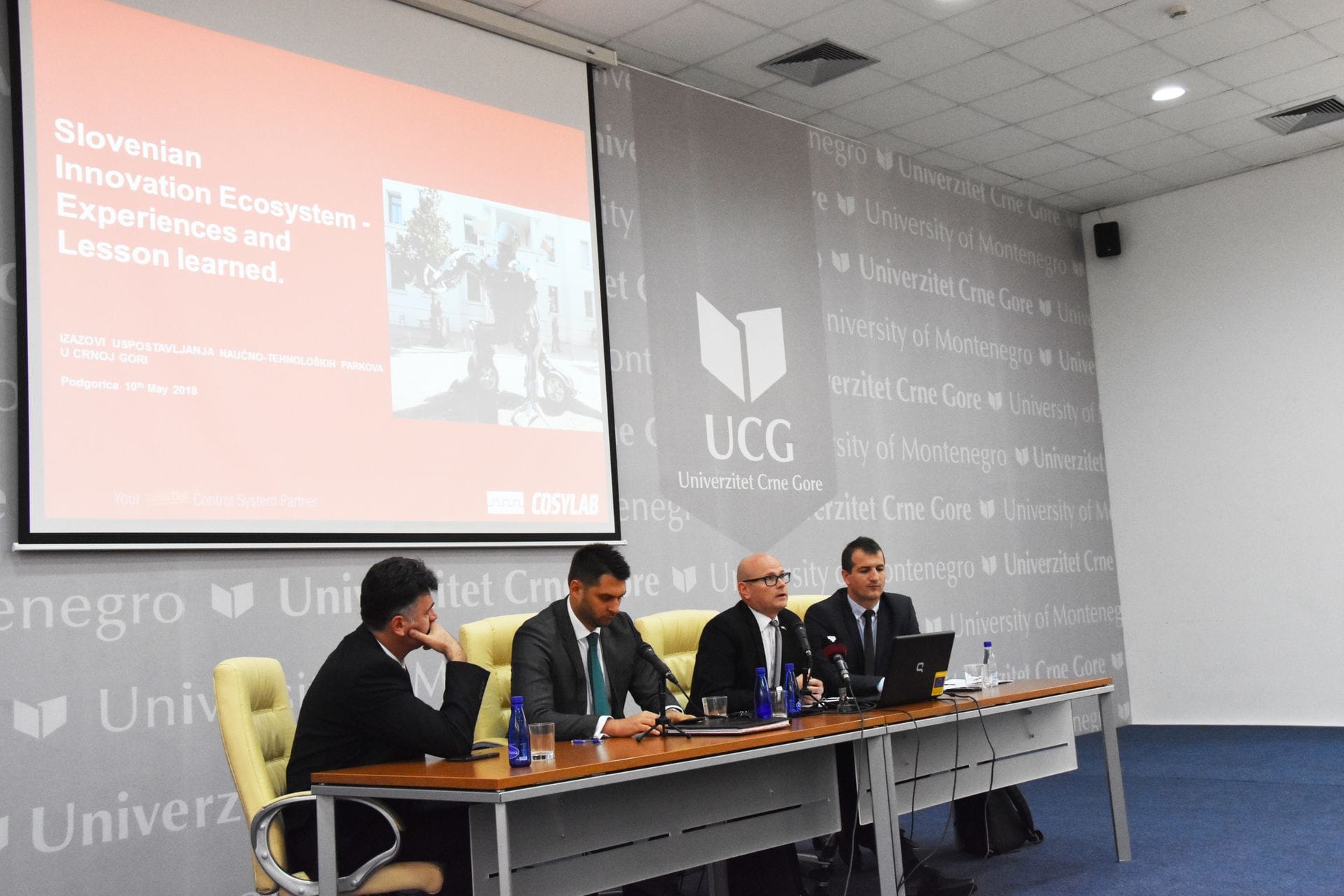
In cooperation with the University of Montenegro, the Ministry of Science organized a workshop on the challenges in establishing the first Science and Technology Park in Montenegro at the Rectorate of the University of Montenegro. The Science and Technology Park is one of the strategic priorities of the Government of Montenegro and one of the most significant scientific-research and innovative projects, aimed at unifying entrepreneurial, innovative, scientific and economic capacities and establishing links with local and regional business centres, incubators and clusters.
In the forthcoming period, work will be carried out on the preparation of technical documentation and adequate legal set-up, the formation of management, as well as on defining support and training programmes in relation to the project. The plan is to construct the seat of the Park in Podgorica, as well as three impulse centres in Nikšić, Bar and Pljevlja. The workshop was an ideal opportunity for relevant stakeholders from the academic community, the economic and the civil sector to exchange views and identify key challenges on the way to establishing the Science and Technology Park.
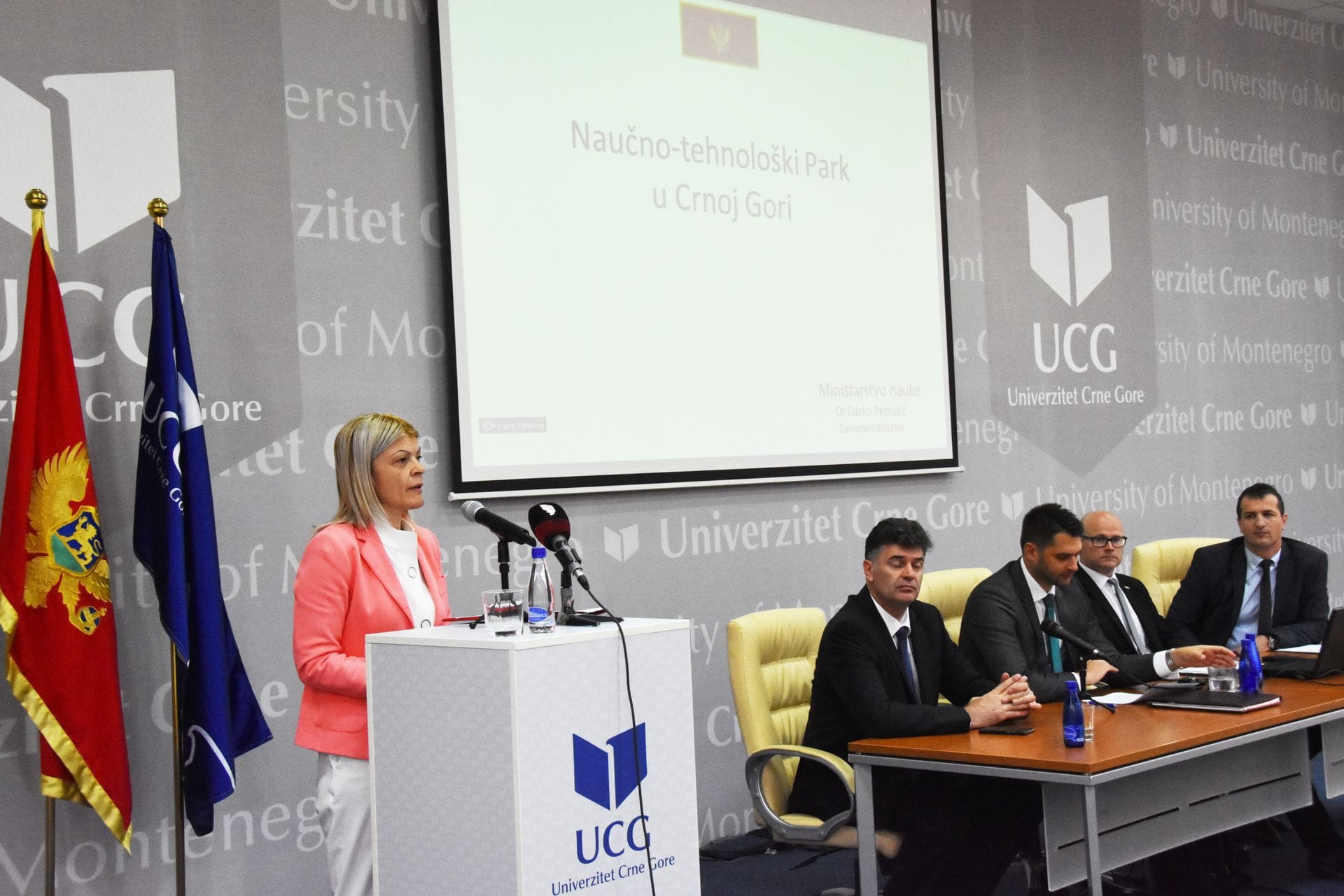
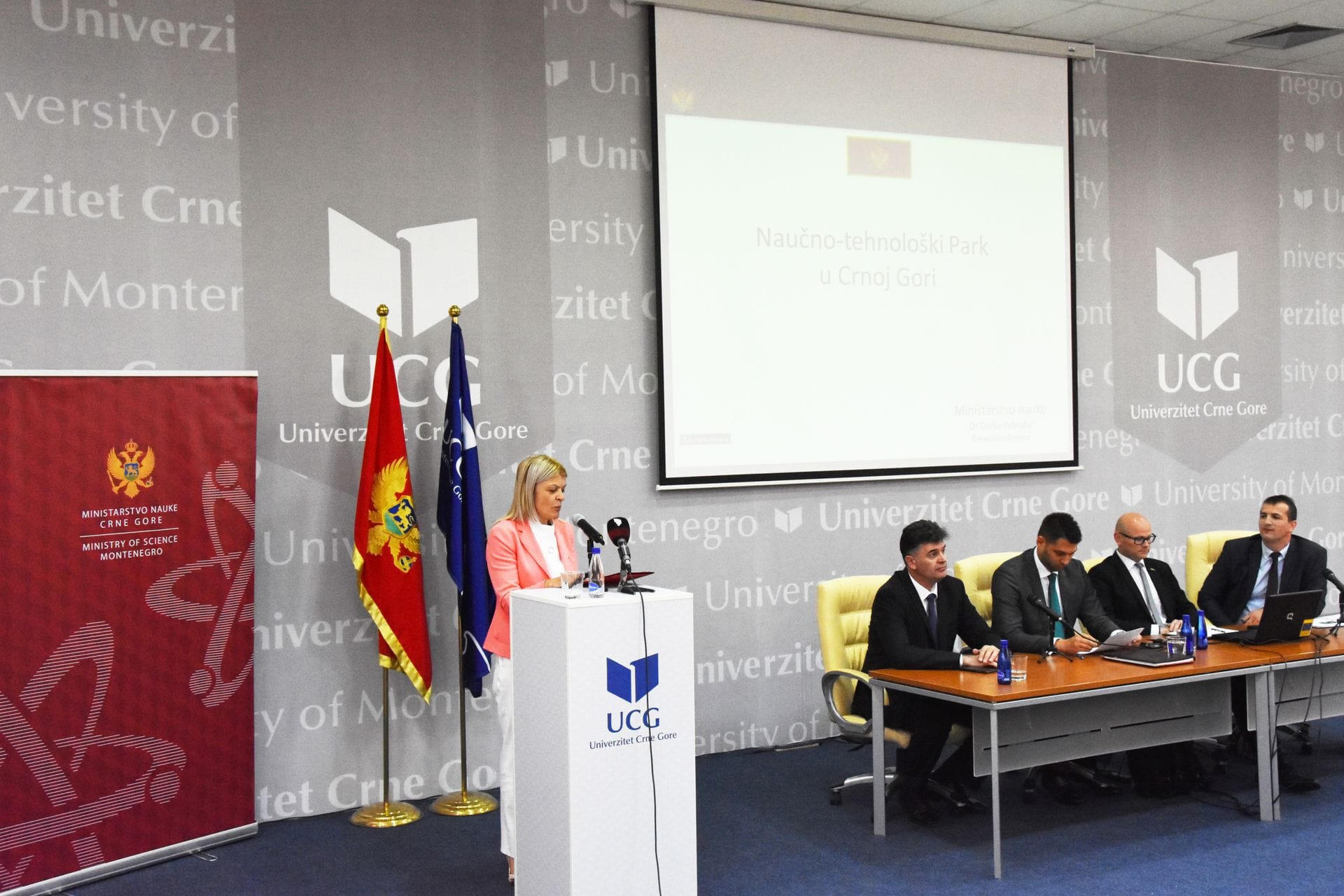
The workshop was opened by the Minister of Science, Dr. Sanja Damjanović, who stated in her introductory address that it was necessary to define a business model according to which the unit would become self-sustainable and independent of the public budget as soon as possible, becoming a generator of economic activity in our country.
- In order for this project to be successful, it is primarily necessary to have good management that will connect all stakeholders such as faculties and research teams, business associations, clusters, start-up communities, companies, as well as foreign investors. We need good cooperation and acceptance of the Science and Technology Park as a place for the development of serious and influential business, scientific and innovative endeavours. We need productive people, and I know that Montenegro has them, here and in the diaspora. We need investments, investors for risky, but potentially very successful businesses, based on new ideas and modern technologies. Finally, we need an adequate legal environment that will not create obstacles for the above but facilitate and direct businesses towards this kind of operation, Minister Damjanović said.
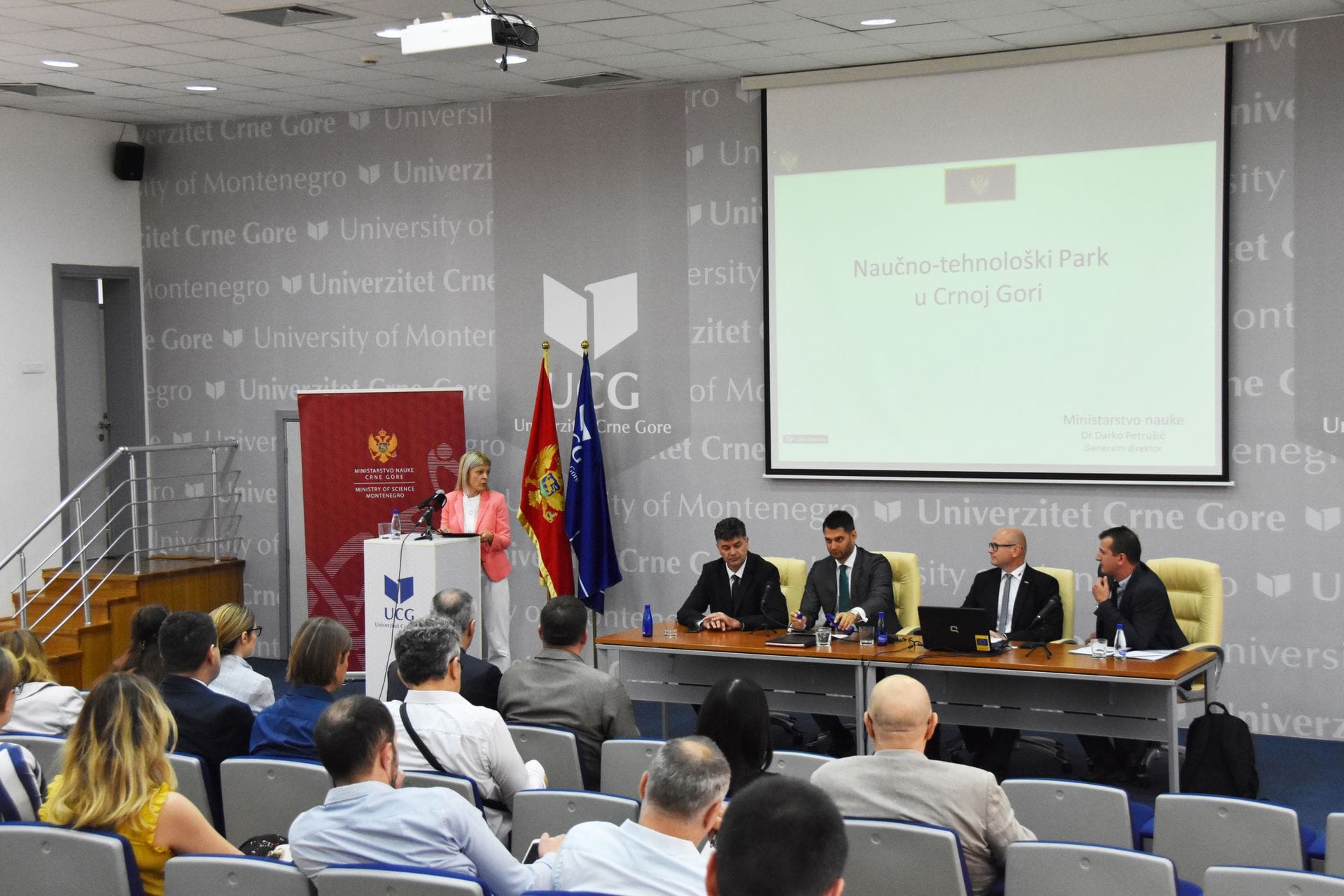
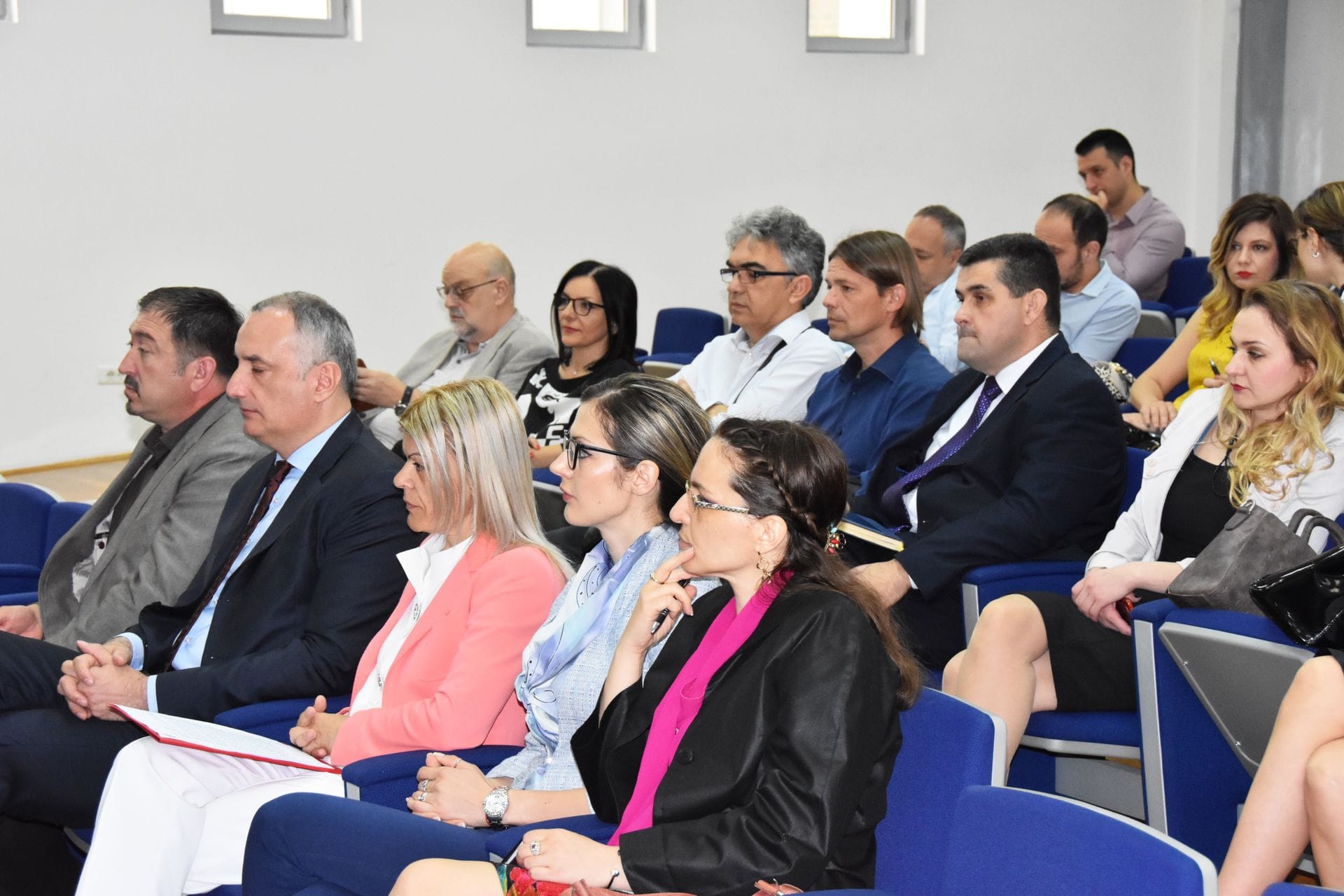
The Science and Technology park gives a chance to realize the long-term intention of connecting science and business and creating a new innovative environment that will, Damjanović pointed out, create new jobs primarily for young people, while facilitating the technological recovery of our country.
Minister Damjanović especially thanked the special guest and lecturer, Mr. Janko Burgar, a business model development expert in one of the best-known fast-growing companies in Slovenia (CosyLab) and former State Secretary in the Ministry of Economy and the Ministry of Public Administration of Slovenia, who familiarized the participants of the workshop with experience of Slovenia in the formation of science and technology parks, providing directions with a view to achieving their successful realization and financial stability.
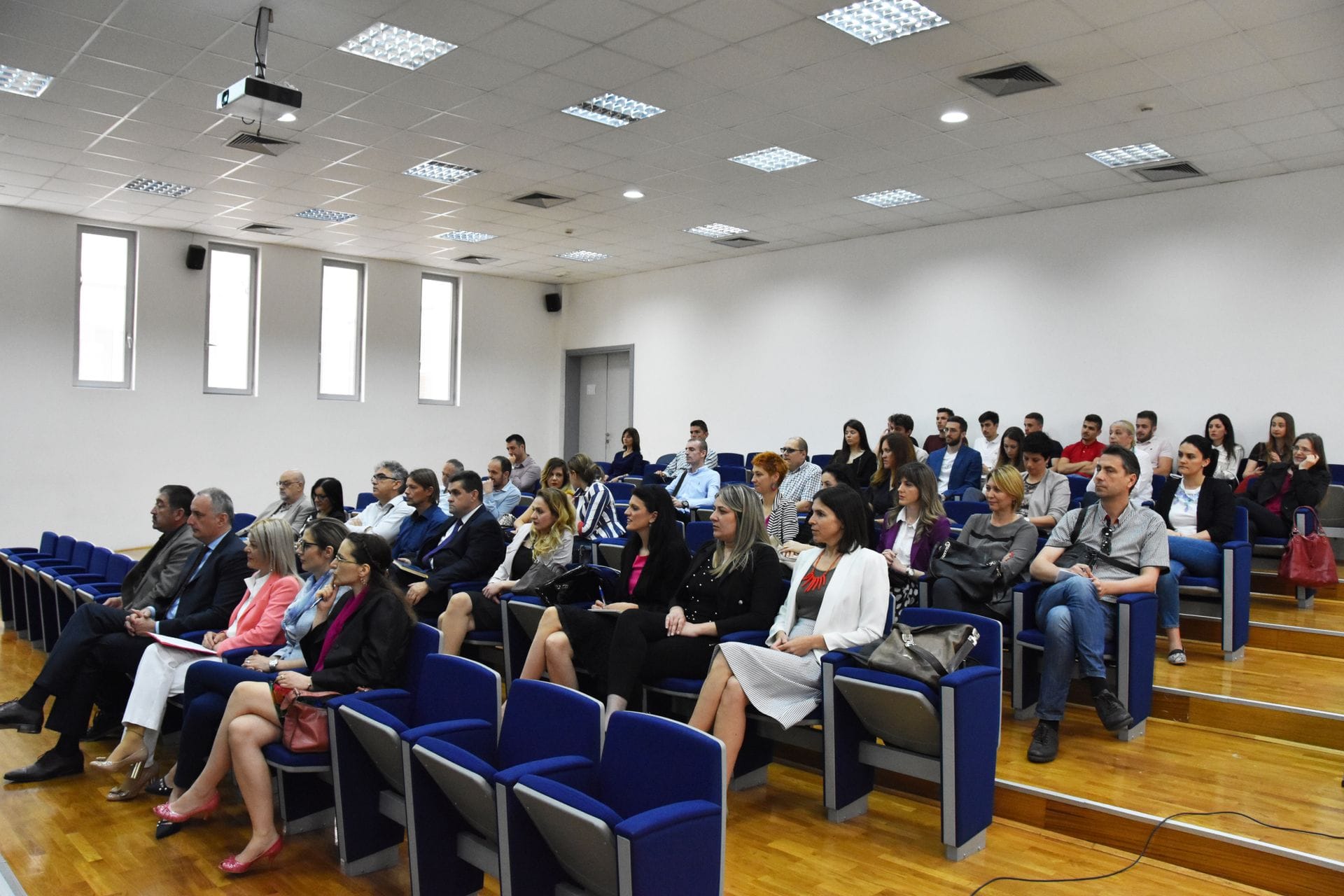
Many attempts to establish science and technology parks in other countries have been unsuccessful, precisely due to the failure to strategically and timely consider the sustainability model. Mr. Burgar pointed to the potential risks and used the active discussion with the participants of the workshop to indicate possible solutions to the challenges on the way to establishing this modern scientific infrastructure in Montenegro. He stressed that creating a national innovation ecosystem was a complex task that required the involvement of several ministries, as well as that it was necessary to involve all actors, but that the impulse needed to come from private sector representatives.
The workshop participants were also addressed by Prof. Irena Orović, Vice-Rector of the University of Montenegro, who said that it was the University’s task to enable an efficient transfer of knowledge and technology, while promoting the innovation culture on which modern societies were based, as well as that the role of the University of Montenegro was extremely important given the global practice of science and technology parks operating within the framework of scientific-research institutions, i.e. universities.
Radosav Babić, Director General of the Directorate for Transformation and Investments in the Ministry of Economy, talked about the development of small and medium-sized enterprises in Montenegro and active support of the Government of Montenegro to business development, reflecting in particular on the start-up support programmes.
Dr. Darko Petrušić, Director General of the Directorate for Scientific-Research Activities in the Ministry of Science, presented the Ministry’s activities and instruments in support of innovative activities, which should strengthen the partnership between scientific-research institutions and the economic sector and raise the level of private sector investment in research and innovation.
The workshop was attended by representatives of faculties of the University of Montenegro, University of Donja Gorica, Chamber of Economy, Intellectual Property Office, Secretariat for Development Projects, Union of Young Entrepreneurs, as well as by representatives of successful Montenegrin start-up companies.
In the forthcoming period, work will be carried out on the preparation of technical documentation and adequate legal set-up, the formation of management, as well as on defining support and training programmes in relation to the project. The plan is to construct the seat of the Park in Podgorica, as well as three impulse centres in Nikšić, Bar and Pljevlja. The workshop was an ideal opportunity for relevant stakeholders from the academic community, the economic and the civil sector to exchange views and identify key challenges on the way to establishing the Science and Technology Park.


The workshop was opened by the Minister of Science, Dr. Sanja Damjanović, who stated in her introductory address that it was necessary to define a business model according to which the unit would become self-sustainable and independent of the public budget as soon as possible, becoming a generator of economic activity in our country.
- In order for this project to be successful, it is primarily necessary to have good management that will connect all stakeholders such as faculties and research teams, business associations, clusters, start-up communities, companies, as well as foreign investors. We need good cooperation and acceptance of the Science and Technology Park as a place for the development of serious and influential business, scientific and innovative endeavours. We need productive people, and I know that Montenegro has them, here and in the diaspora. We need investments, investors for risky, but potentially very successful businesses, based on new ideas and modern technologies. Finally, we need an adequate legal environment that will not create obstacles for the above but facilitate and direct businesses towards this kind of operation, Minister Damjanović said.


The Science and Technology park gives a chance to realize the long-term intention of connecting science and business and creating a new innovative environment that will, Damjanović pointed out, create new jobs primarily for young people, while facilitating the technological recovery of our country.
Minister Damjanović especially thanked the special guest and lecturer, Mr. Janko Burgar, a business model development expert in one of the best-known fast-growing companies in Slovenia (CosyLab) and former State Secretary in the Ministry of Economy and the Ministry of Public Administration of Slovenia, who familiarized the participants of the workshop with experience of Slovenia in the formation of science and technology parks, providing directions with a view to achieving their successful realization and financial stability.

Many attempts to establish science and technology parks in other countries have been unsuccessful, precisely due to the failure to strategically and timely consider the sustainability model. Mr. Burgar pointed to the potential risks and used the active discussion with the participants of the workshop to indicate possible solutions to the challenges on the way to establishing this modern scientific infrastructure in Montenegro. He stressed that creating a national innovation ecosystem was a complex task that required the involvement of several ministries, as well as that it was necessary to involve all actors, but that the impulse needed to come from private sector representatives.
The workshop participants were also addressed by Prof. Irena Orović, Vice-Rector of the University of Montenegro, who said that it was the University’s task to enable an efficient transfer of knowledge and technology, while promoting the innovation culture on which modern societies were based, as well as that the role of the University of Montenegro was extremely important given the global practice of science and technology parks operating within the framework of scientific-research institutions, i.e. universities.
Radosav Babić, Director General of the Directorate for Transformation and Investments in the Ministry of Economy, talked about the development of small and medium-sized enterprises in Montenegro and active support of the Government of Montenegro to business development, reflecting in particular on the start-up support programmes.
Dr. Darko Petrušić, Director General of the Directorate for Scientific-Research Activities in the Ministry of Science, presented the Ministry’s activities and instruments in support of innovative activities, which should strengthen the partnership between scientific-research institutions and the economic sector and raise the level of private sector investment in research and innovation.
The workshop was attended by representatives of faculties of the University of Montenegro, University of Donja Gorica, Chamber of Economy, Intellectual Property Office, Secretariat for Development Projects, Union of Young Entrepreneurs, as well as by representatives of successful Montenegrin start-up companies.
Related articles:
Request for prequalification Jan 17, 2025
Is this page useful?
